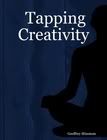 In modern society, people often equate the term "myth" with "lie". At the very least, we allow for a myth simply to be a misunderstanding of what should seem like a logical conclusion. In the literary sense, however, the concept of myth means so much more.
In modern society, people often equate the term "myth" with "lie". At the very least, we allow for a myth simply to be a misunderstanding of what should seem like a logical conclusion. In the literary sense, however, the concept of myth means so much more.
In the modern age, Joseph Campbell is perhaps the world's most noted comparative mythologist. Speaking of mythology, he offered:
A whole mythology is an organization of symbolic images and narratives, metaphorical of the possibilities of human experience and the fulfillment of a given culture at a given time.In this context, the concept of myth and mythology become of much more use to tapping creativity in your writing. Across virtually every continent and every culture, a local mythology has evolved. These mythologies show us the values and taboos of the societies from which they rose. Moreover, they collectively show us the values of humanity as a whole.
Many contemporary writers have used classic mythology to influence their works:
James Joyce: Ulysses (The Odyssey)
Thomas Pynchon: The Crying of Lot 49 (The Narcissus)
Salmon Rushdie: The Ground Beneath Her Feet (Orpheus & Eurydice)
This is just a very small sample. Each of these writers, especially Rushdie, have pulled influence directly from myths originating in the Western and Eastern worlds alike.
In movies, George Lucas has made no secret of the role of mythology in influencing the most successful movie series in history: Star Wars. And the Coen Brothers openly used names and references to The Odyssey in O Brother, Where Art Thou?
But why? Why is it that myths that are thousands of years old can still be as powerful, and exert such an influence, in today's society? Because myths, at their very core, are about humanity. They are about trials and tribulations. They are about moral conflict and transcendence.
Achilles and Arjuna both asked if war was the answer.
Odysseus and Pious Aeneas both persevered until they reached their "home".
Jesus and Buddha transcended the physical boundaries of the Universe.
To use myth in your own writing, pick two different cultures and find a common theme. Almost every mythology has a creation story. You can start there. Read these stories. Compare them. Note differences. More importantly, note similarities. Then put the pen to the page and give it a shot yourself. You don't have to write The Iliad, but grasping the concept of myth as is applies to core human values should help you in your own writing.


1 comment:
Great post geoff. Myths surely suggest how a particular society functions and its amazing to see how cultures across the globe have some very similar myths weaved in different stories. Even if you take the classic example of fairy tales, you’ll see that they revolved around the same myths, only the rendition differed from culture to culture.
Post a Comment